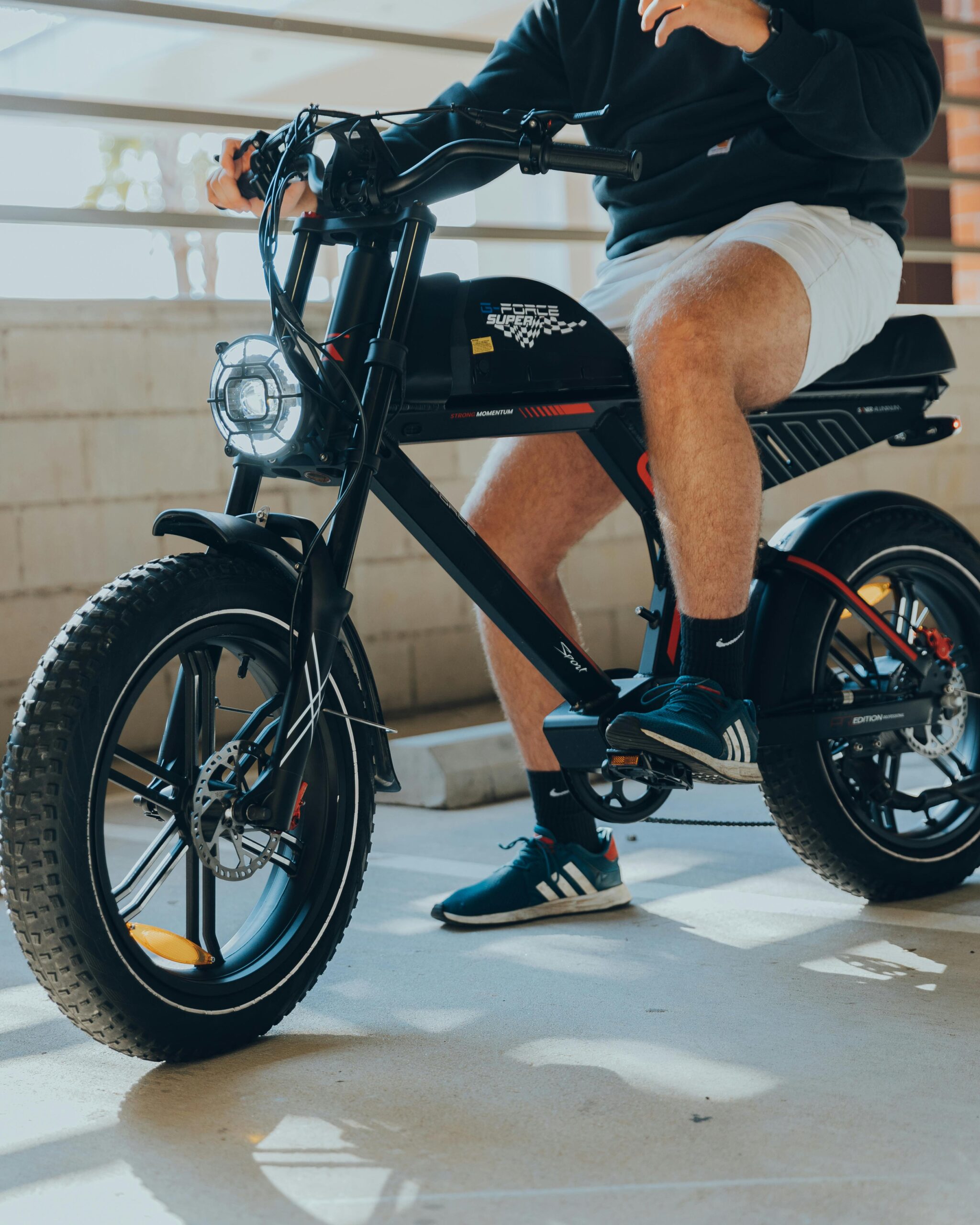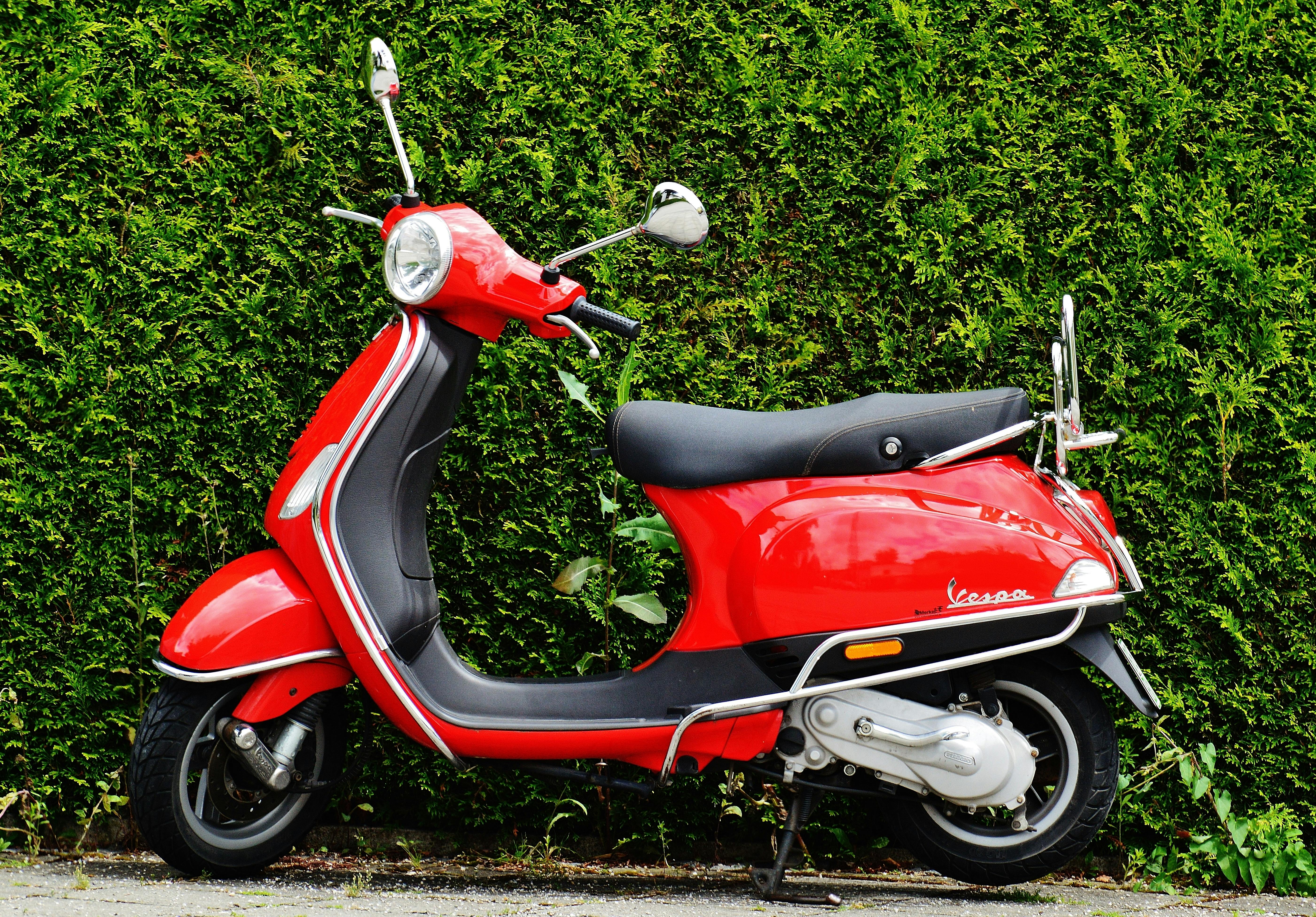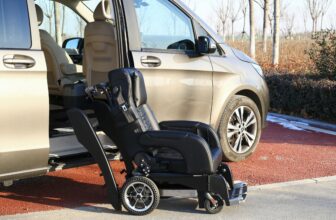
Your journey starts where the rubber meets the road
Think of your mobility scooter’s tires like a pair of running shoes. You wouldn’t wear slick dress shoes for a jog in the park, nor would you wear heavy hiking boots to a sprint on a track. The right footwear gives you comfort, stability, and the confidence to go the distance. Your scooter’s tires are no different. They are the single point of contact between you and your world. Choosing the wrong ones can mean a jarring, uncomfortable ride, or worse, a flat tire miles from home. Many riders simply replace their tires with what came on the scooter, but what if there’s a better option for your lifestyle? This guide is your personal fitting session. We will demystify the options and give you the knowledge to choose the perfect tires for your journeys across the USA and Canada.

This Photo was taken by Pixabay.
Why your scooter’s ‘shoes’ matter more than you think
Tires do more than just roll. They are a critical component of your scooter’s performance, affecting everything from battery range to overall stability. A good set of tires provides the right amount of traction, absorbs shock from uneven surfaces, and ensures you can navigate your environment safely. The right choice enhances your comfort on long rides and gives you peace of mind. Conversely, worn-out or ill-suited tires can lead to a rough ride, poor handling, and increased risk. For a complete overview of keeping your scooter in top shape, it’s wise to review all aspects of mobility scooter safety and its essential tips.

Cebihy 4 Wheel Mobility Scooter, Electric Power Mobile Scooters for Seniors Adult with Lights Collapsible and Compact Duty Travel Scooter w/Basket and Extended Battery (Blue)
Price: $449.99 | Rating: 4,6/5
This compact scooter is great for travel and daily errands, featuring a collapsible design and an extended battery for longer trips. Its bright lights enhance visibility and safety.
Cons: The compact size may not be comfortable for all users on very long journeys.
Decoding the three main types of scooter tires
Just as there are many different types of mobility scooters available, there are several kinds of tires. Understanding the core differences is the first step to making a smart choice. Let’s break down the big three.

This Photo was taken by RWEMA Fatjoe.
Pneumatic (air-filled) tires: the cushioned ride
These are the most common type of tire, similar to what you’d find on a bicycle or car. They are filled with air, which provides a natural cushion against bumps, cracks, and uneven terrain. Think of these as the luxury, air-cushioned running shoes of the scooter world.
- Pros: Offer the smoothest, most comfortable ride. Their flexibility provides excellent traction on a variety of surfaces, including grass, gravel, and wet pavement.
- Cons: They can get a puncture, leading to a flat tire. They also require regular maintenance, as you need to check and maintain the air pressure for optimal performance and safety.
Solid (puncture-proof) tires: the worry-free workhorse
Solid tires are typically made from rubber or a similar durable, synthetic material. They have no inner tube and are completely solid. These are your durable, no-nonsense work boots – they get the job done without any fuss.
- Pros: Their biggest advantage is that they are 100% puncture-proof. You will never get a flat. They are extremely durable and require virtually no maintenance.
- Cons: The ride is much firmer and can be jarring on bumpy surfaces. They offer less traction than pneumatic tires, especially on wet or uneven ground.
Foam-filled tires: the best of both worlds?
Foam-filled tires are a hybrid solution. They have a tough outer tire like a pneumatic, but instead of being filled with air, they are injected with a foam insert or liquid polymer that solidifies. This makes them puncture-proof while offering more cushioning than a solid tire.
- Pros: They cannot go flat, offering the same peace of mind as solid tires. They provide a more cushioned ride than solid tires.
- Cons: The ride is still firmer than a true pneumatic tire. They are also heavier, which can slightly reduce your scooter’s battery range.

MS08 4-Wheel Mobility Scooter for Adults/Seniors, 15 Miles Range, 350W Motor, 360WH Battery, 300LBS Capacity, Rotating Seat, Cup Holder, Compact & Portable for Elderly(FSA/HSA Eligible)
Price: $399.99 | Rating: 4,8/5
An excellent choice for those seeking a balance of power and portability, this scooter offers a 15-mile range and a robust 350W motor. The rotating seat makes getting on and off easier.
Cons: May not be suitable for very rough, off-road terrain due to its compact design.
Matching your tires to your terrain and climate
The best tire for someone in Phoenix, Arizona, might not be the best for a resident of Montreal, Quebec. Your daily environment is the most important factor in your decision.

This Photo was taken by Zacharie Beaudoin.
For the city dweller: smooth sailing on pavement
If your scooter usage is primarily indoors in shopping malls and on smooth, well-maintained sidewalks, solid or foam-filled tires are an excellent choice. The risk of punctures from urban debris is high, and the worry-free nature of these tires is a major benefit. The slightly harsher ride is less noticeable on consistently flat surfaces.
For the suburban explorer: parks, paths, and everything in between
If your adventures take you across varied terrain – from paved paths to grassy parks and cracked sidewalks – pneumatic tires are your best bet. The superior cushioning will make for a dramatically more comfortable experience. The enhanced traction is also a key safety feature on loose or uneven ground. If you frequently tackle more rugged environments, you may even consider one of the best all-terrain mobility scooters, which come standard with robust pneumatic tires.
Considering the climate: a north american necessity
Weather plays a huge role. In the cold winters of Canada and the northern USA, the rubber compounds in solid tires can become even harder, reducing traction. Pneumatic tires, when properly inflated, maintain a better contact patch with the ground in wet or cold conditions. Conversely, extreme heat in southern states can increase air pressure in pneumatic tires, so regular checks are vital. According to the U.S. Access Board, maintaining equipment for safe use in all conditions is a key part of personal mobility and public accessibility guidelines.

This Photo was taken by Efrem Efre.

Heavy Duty Mobility Scooter with Roof & Windshield – Electric Powered Wheelchair for Seniors & Adults 500lbs Capacity- 800W Fast Mobility Chair with Long Range Battery Remote Keys
Price: $2,896.00 | Rating: 5/5
This all-weather scooter is built for durability and comfort, featuring a protective roof and windshield. With an 800W motor and high capacity, it’s ideal for users who need a robust, reliable ride.
Cons: Its large size and weight may make it difficult to transport in smaller vehicles.
A quick reference: comparing tire types
The global mobility scooter market is projected to grow by 7.5% annually, reaching over $2.5 billion by 2025. This means more users than ever are seeking clear information. Here’s a simple table to help you compare your options at a glance.
| Feature | Pneumatic (Air-Filled) | Solid | Foam-Filled |
|---|---|---|---|
| Comfort | Excellent | Fair | Good |
| Maintenance | Regular checks needed | None | None |
| Puncture Risk | Yes | No | No |
| Best Terrain | Varied surfaces | Smooth, flat surfaces | Mixed indoor/outdoor |

This Photo was taken by Shan Huang.
Essential tips for tire maintenance
Once you’ve chosen your tires, a little care goes a long way. Proper maintenance ensures they last longer and perform safely. Many replacement tires can be found in our comprehensive guide to mobility scooter accessories and parts.
Checking tire pressure (for pneumatic tires)
Check the pressure at least once a month using a simple pressure gauge. The recommended PSI (pounds per square inch) is usually printed on the sidewall of the tire. Under-inflated tires can reduce battery range and make handling sluggish, while over-inflation can cause a bouncy ride and increase the risk of a blowout.
Inspecting for wear and tear
Regularly look over all your tires for signs of aging. Check for cracks in the sidewall, and make sure the tread isn’t worn smooth. Uneven wear can indicate an alignment issue. Major tire manufacturers like Michelin offer guides on how to read your tire’s sidewall for age and specifications.
When to replace your tires
Replace your tires when the tread is significantly worn down, or if you see visible cracking, bulging, or damage. A good rule of thumb is the “penny test.” If you can see all of Abraham Lincoln’s head when you stick a penny in the tread, it’s time for a new set.

S1 Powered Mobility Scooter for Seniors 4 Wheels – 25 Miles Range, 6mph, 300lbs Loading, All Terrain Folding Mobility Scooter for Adults with Height Adjustable Seat, HSA FSA Eligible
Price: $729.99 | Rating: 4,5/5
A versatile all-terrain scooter with an impressive 25-mile range and a top speed of 6mph. The height-adjustable seat ensures a comfortable fit for a wide range of users.
Cons: Its all-terrain capabilities make it heavier than more basic travel models.

This Photo was taken by Wildfire 1775.
Frequently asked questions about mobility scooter tires
Can I put different types of tires on my scooter?
It is generally best to use the same type of tire on all wheels to ensure balanced and predictable handling. Mixing a pneumatic tire on the front with a solid tire on the back, for example, can create an unstable ride.
How do I find my tire size?
The size is printed directly on the sidewall of your current tire. It will look like a series of numbers, such as “260×85” or “4.10/3.50-4”. You must match these numbers exactly when ordering replacements.
Are foam-filled tires worth the extra cost?
For many users, yes. If you love the idea of being puncture-proof but find the ride of solid tires too harsh, foam-filled tires are an excellent middle ground. They offer a great balance of durability and comfort for everyday use.
Can I change my scooter tires myself?
For a handy person, it is possible, especially with the right tools. However, scooter tires can be very tight on the rim, and pneumatic tires require care when setting the inner tube. For most people, we recommend having a qualified mobility equipment dealer or technician perform the installation to ensure it’s done safely and correctly. The Christopher & Dana Reeve Foundation often highlights the importance of professionally maintained assistive technology for user safety.

This Photo was taken by Zacharie Beaudoin.
Your smooth ride to confidence
Choosing the right tires for your mobility scooter isn’t just a maintenance task; it’s an upgrade to your daily life. By thinking of them as the perfect pair of shoes for your journey, you shift the focus from confusing specifications to your personal needs. Are you a city marathoner on smooth pavement, or a trail runner exploring varied paths? Answering that question is the key. You no longer have to guess between pneumatic, solid, or foam-filled. You now have the knowledge to match the tire to your terrain, your climate, and your lifestyle. This decision directly impacts your comfort, your confidence, and your freedom. By making an informed choice, you are ensuring that every time you leave your home, your scooter is perfectly equipped to give you the safest, smoothest, and most reliable ride possible. Your independence is paramount, and it all starts where the rubber meets the road.






